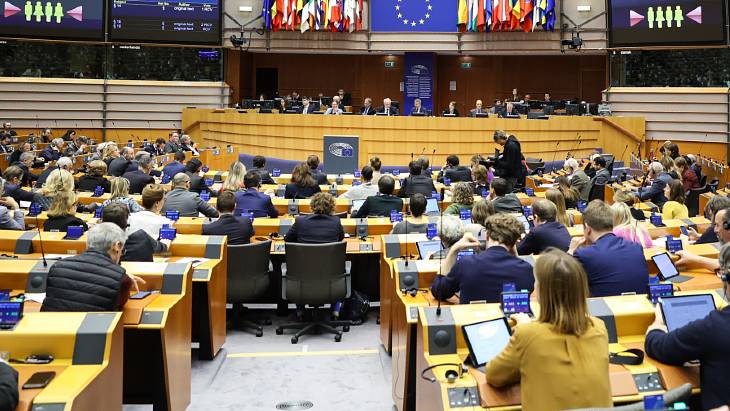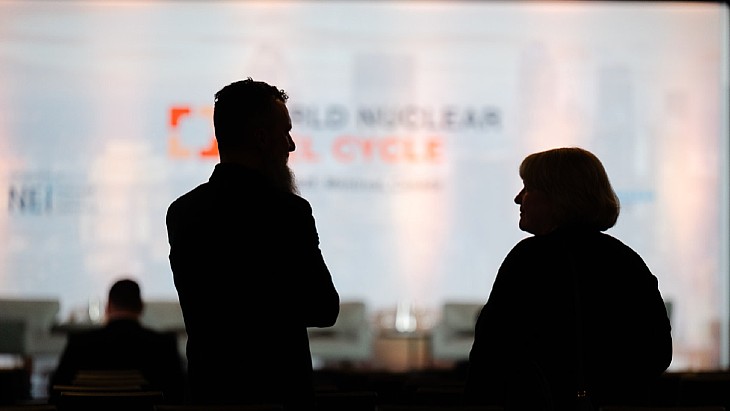European Parliament calls for Russia sanctions to include nuclear

The resolution "calls for the list of individuals and entities targeted by the sanctions to be expanded to include Russian companies still present on EU markets, such as Lukoil and Rosatom ... reiterates its call for an immediate and full embargo on imports of fossil fuels and uranium from Russia, and for the Nord Stream 1 and 2 pipelines to be completely abandoned".
It also: "Condemns Russia’s illegal occupation of Ukraine’s Zaporizhzhia nuclear power plant and, in order to mitigate the risk of a nuclear or radiological incident, supports the proposal to set up a nuclear safety and security protection zone around it, as proposed by the International Atomic Energy Agency."
The motion, backed by 489 votes to 36, with 49 abstentions, was designed to provide parliamentarians' expectations ahead of the summit of Ukraine and EU leaders on Friday. In addition to expanding the sanctions it also calls for further military assistance to Ukraine and steps towards the country joining the union.
Ukraine, whose largest nuclear power plant, Zaporizhzhia, has been under Russian military control since early March 2022, has been calling for the sanctions to include the nuclear energy sector.
The Ministry of Energy said that earlier this week Energy Minister Herman Halushchenko and his UK counterpart Grant Shapps had "discussed the importance of consolidating joint efforts in the international arena for the introduction of sanctions against the Russian nuclear industry".
EU sanctions have to be approved unanimously by its member countries, and Hungary's Prime Minister Viktor Orban has said that his country will veto any plan by the 27-member union for sanctions which affect nuclear energy. Hungary has plans for two new Russian reactors at its existing Paks nuclear power plant, which gets its nuclear fuel from Russia.
European Commission President Ursula von der Leyen did not mention any inclusion of nuclear energy within the sanctions regime, at a press conference with Ukraine's President Volodymyr Zelensky, ahead of the summit in Kiev. She highlighted that "the price cap on crude oil already costs Russia around EUR160 million a day" adding that "we will introduce, with our G7 partners, an additional price cap on Russian petroleum products and by 24 February, exactly one year since the invasion started, we aim to have the tenth package of sanctions in place".
In response to the European Parliament vote, a Rosatom statement said: "When conducting our activities, including on international markets, we have always taken the view that nuclear energy should remain outside of politics. Rosatom works transparently all around the world in the interests of its customers and partners, and with strict adherence to international and national legislation."



.jpg)






_50521.jpg)

